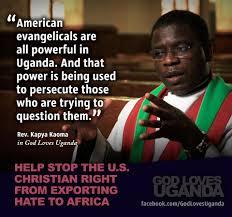A Glocal Theological Reflection.

A friend asked me to discuss the understanding of suffering from an African theological perspective and I was glad because it was a chance to think locally. I reflected back on my African context and was reminded that one ought to pay a significant amount of attention to any African historical context in order to have a steady shot towards understanding the theological subject of suffering on the continent. It is also noteworthy to indicate that the meanings of “suffering and hardship” per say, are loaded words from an African perspective. They includes a vast array of issues ranging from the breakdown of families and marries, chronic hopelessness, shame, rejection, disabilities, war, illiteracy, human trafficking, civil unrest, corruption, inequality, impunity, poverty, famine, poor governance, colonial legacy, ethic oppression and conflict, inadequate health care, human trafficking, sorcery, environmental stewardship, land grabbing, violence against woman and children, injustice by both locally and internationally. Therefore, any attempts aimed at grappling with an African theological intelligence, requires on awareness of the various local dynamics at play. According to the article Constructing Local Theologies, Schreiter agrees by writing:
In contexts where issues of oppression and conflict were paramount, a lengthy analysis of relationship of power and injustice was clearly called for. Social, economic, and political questions engaged the energies that had once been devoted to philosophical or metaphysical questions. It has gradually become unthinkable in many Christian churches to engage in any theological reflections without first studying the context in which it is taking place. Without such an initial analysis, a theology readily can become either irrelevant or a subtle tool of ideological manipulation.[1]
I couldn’t agree more and as I interact with people from various cultures, I have been impacted by the need for a well round theological outlook, least one falls prey to ideological schemes. For the purpose of bringing it closer to home, I was recently invited to be the after film speaker at the African film festival in Portland. My task was to provide commentary on the Award winning film director Roger Ross William’s documentary called “God Loves Uganda”. Now, with no wish to be a spoiler for those who have not seen the film, the general claim of the footage, is that Western right wing evangelicals through their mission trips namely from Kansas’s International House of Prayer as shown in “God Loves Uganda”, are promoting fear, stigma and hate against gay people, along side their counterparts in Kampala, Uganda. The movie also shows how Western right wing evangelical aid dollars and media fire power enable the campaign. I’ll live it upon anyone who wants to know more, to watch the documentary. At the same time, I also lament the fact that the message some Christians send out in the name of Christ and His body is at times flummoxing. During the course of watching the film, I thought to myself in this case, “What does Kansas have in common with Kampala, Uganda? Based on first impressions, one answer might be missionaries of fear, stigma and hate?” My point is that Schreiter’s counsel and body work is a formidable sound board for Christians seeking to engage in theological and missiological matters at both a local and global scale. A local biblical theology, ought to bear the evidence of God’s love, respect, peace, eagerness to learn, humility, service and truth.
[1]Robert J. Schreiter, “What is Local Theology?” in Constructing Local Theologies, 1-21, (New York: Orbis, 1985), 4.
Leave a Reply
You must be logged in to post a comment.